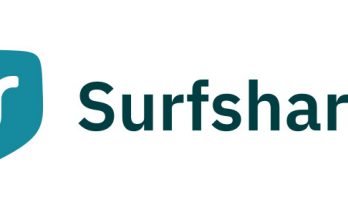Table of Contents
The world of Virtual Private Networks (VPNs) is getting bigger and bigger. While VPN technology has essentially been around since shortly after the birth of the internet, it’s still a relatively young industry in terms of commercial availability. However, following a 2017 decision by the Trump administration to give ISPs the power to sell user data without explicit consent, fake and otherwise less-than-reputable VPN providers have given the industry a major boom.
Unfortunately, there’s no current industry regulation standard to keep users safe, though organizations like the VPN Trust Initiative (VTI) are working to change that.
In the meantime, users are reliant on often dodgy VPN review sites to navigate the available options.
What is a VPN?
In basic terms, a VPN is simply a network forwarding service. Instead of connecting directly to a website from your device, you first connect to a server. This changes your IP address, which can also mask your real location.
However, there are a lot of other steps involved. Your online traffic needs to be encrypted and use a secure tunneling protocol to make sure it remains private. And there should be several safeguards to further protect that traffic.
For example, you need to use a NAT firewall and/or kill switch feature to make sure no traffic is accidentally sent through your normal (unprotected) internet connection.
A working VPN connection should allow you to spoof your location and bypass online censorship. This can range from government-enforced restrictions on the websites citizens can access (as is the case in many countries) to businesses limiting access to specific locations.
It’s the latter of these that concerns most people. After all, online streaming services such as Netflix make different content available to different countries, primarily based on distribution rights. Others, like the recently launched Disney+, are only available in a handful of countries.
Using a reputable VPN will allow you to get around these restrictions.
But which VPN providers can you trust?
ExpressVPN vs. Surfshark VPN
The industry isn’t all doom and gloom, at least. There are many trustworthy VPN companies, though you usually have to sift through a lot of bad ones to find them.
But going through all of them (even just the trustworthy ones) takes a lot of time. There are so many different aspects to consider, and doing so typically goes beyond the average internet user’s capabilities.
“A lot of people don’t have time to compare VPNs,” writes Chief Editor at VPN comparison site TheVPNShop.com, Mandee Rose. “Which is a problem, because that’s how people end up getting scammed. This is why we try to find the most trustworthy VPNs for users. For example, ExpressVPN and SurfShark VPN are great options.”
So, per Rose, let’s take a quick dive into these two providers!
ExpressVPN
ExpressVPN is one of the older VPN providers and is generally considered one of the best available.
Part of the reason for this is ExpressVPN is based in the British Virgin Islands (BVI). The BVI sits outside of the convoluted global surveillance networks such as the 5/9/14 Eyes Alliance.
Any foreign intelligence agency (such as the NSA) who wants to access the records of BVI companies needs to go through a lengthy, troublesome application process.
Of course, no VPN that relies purely on their jurisdiction to protect user privacy is worth their salt. This is especially important in ExpressVPN’s case, as there are some doubts as to the provider’s real location. Some investigative parties confirmed it to be a Hong Kong company.
However, ExpressVPN offers strong security features and a strict no-logs policy to offset any doubts. On top of that, the provider offers one of the largest server networks in the industry, with over 3,000 servers available in 94 countries worldwide.
Surfshark VPN
Surfshark VPN is almost like a sibling to ExpressVPN. It’s also based in the British Virgin Islands - though in Surfshark VPN’s case, there’s no reason to doubt that claim.
This means there’s also no reason to worry about government surveillance. But that doesn’t mean Surfshark VPN’s security features and strict no-logs policy are any less important. The provider also offers a series of additional features to help users feel even more secure.
With that said, Surfshark VPN does have a much smaller server network, with only 1,040+ servers available in 61+ countries worldwide.
ExpressVPN vs. Surfshark VPN: In-Depth Comparison
Other than the vast difference in server network size (and the fears of ExpressVPN being a Hong Kong-based provider), the above information makes the two services seem fairly identical. For the rest of this post, we’ll take a more in-depth look at what the providers have to offer.
1. Privacy and Security
As mentioned, if ExpressVPN is truly based in Hong Kong, then there are some legitimate privacy concerns. After all, the Chinese government has far more control over Hong Kong’s politics than most people think.
However, the provider has said (even if only in a Reddit comment) that ExpressVPN is by no means connected to China. While they do have offices in Hong Kong, the company also has offices in many other parts of the world – and, according to them, they remain a BVI-based provider.
Ultimately, the decision to trust that claim or not is up to you. Something that can - and should - influence your choice is the privacy and security features on offer. And ExpressVPN isn’t stingy with any of these. Not only does the provider have a solid Privacy Policy, but their 256-bit AES encryption remains on-par with the military standard we expect from our VPNs. Additionally, ExpressVPN offers robust protection against IP and DNS leaks. Users also have little or no restrictions on peer-to-peer (P2P) file sharing for legal purposes.
In these regards, Surfshark VPN goes the extra mile by using 256-bit AES-GCM encryption, which is somewhat more secure than the AES-CBC version many other providers rely on. The provider’s leak protection is also on-par with that of ExpressVPN.
Additionally, along with an airtight privacy policy, Surfshark VPN also offers a Camouflage Mode that will prevent even your ISP from recognizing VPN activity.
2. Streaming Capabilities
Earlier, we mentioned the fact online streaming services offer different content libraries based on the viewer’s location.
This is one of the biggest reasons most people use a VPN in the first place - especially as some companies (like Netflix) charge different subscription fees based on your location.
Before 2016, pretty much any VPN would work for getting around this issue. All you had to do was connect to a VPN server in the right location and you’d have access to that region’s subscription fees and media library.
But then the copyright owners started complaining about this and streaming services responded by implementing anti-VPN measures. Now, most VPN services only work intermittently - or not at all.
ExpressVPN and Surfshark VPN are two exceptions.
- With ExpressVPN, there isn’t a dedicated list of servers optimized for streaming - you’ll need to keep testing servers in your chosen location until you find one that works. That said, most servers work reliably.
- Surfshark VPN, on the other hand, has a NoBorders Mode that makes streaming a lot easier. Again, there aren’t any optimized streaming servers available. But thanks to NoBorders Mode (which is more of a built-in function than a mode you can select), users should have no issues bypassing geo-location blocks.
3. Pricing and Support
One of the biggest divides between ExpressVPN and Surfshark VPN is their subscription fees.
This isn’t as noticeable with a monthly subscription:
- ExpressVPN charges $12.95/month, while Surfshark VPN charges $11.95 for the same. Once we get to a yearly subscription, however, the difference becomes far more marked: $99.95/year (ExpressVPN - works out to $8.32/month) vs. $71.88/year (Surfshark VPN - works out to $5.99/month).
- Surfshark VPN also offers a 2-year subscription plan ($47.76) for even greater savings. By comparison, ExpressVPN’s third subscription option is for 6 months ($59.95).
Both providers offer a 30-day money-back guarantee and 24/7 support. The support teams are pretty neck-to-neck too: both answer promptly with as much information as you need.
4. Speed
Last, but not least, is the speed comparison. This is a highly subjective issue, as there are a multitude of factors that affect VPN speed. Not all of them can be countered by the user, unfortunately.
However, based on independent tests aimed at creating as standardized a test as possible, Surfshark VPN comes out on top. We only experienced a 0.9% loss of internet speed (no VPN vs. VPN), whereas ExpressVPN gave us a 5.6% drop.
At the end of the day, this might be due more to the number of users than anything else. Both providers yield highly satisfactory VPN speeds.
Final Verdict
ExpressVPN vs. Surfshark VPN - who wins?
Ultimately, that’s up to you; the user. But as an overall final verdict, we’d have to say Surfshark VPN beats ExpressVPN - albeit by a very small margin.



